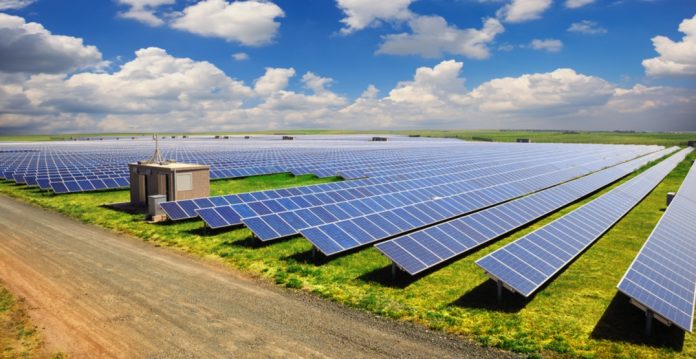The thing I hate about Zimbabwe is how it messes with your mind to think basic services are luxuries you should not even think about. Medicine at a hospital? Come back to earth o dreamer. Water out of a tap on demand? What do you think this is, Mansa Musa’s palace?
Being the good Zimbabweans that we are, we still murmur and complain but we also just find a way to make do without. We are like cockroaches sometimes, we find a way to survive.
Our perennial power challenges seem to have gotten worse but we have been slowly but surely coming up with solutions that don’t depend on ZETDC and the national grid. We had to look elsewhere, what with the country producing around 300MW against a demand of at least 1700MW.
Is it any wonder Zimbabweans are turning to solar? We found out that Zim is the biggest adopter of solar for backup electricity as a percentage of the total number of households. It gets even more impressive, 46% of Zim households have solar as their main source of electricity.
Zimbabwe’s solar potential
We often talk about how Zimbabwe is blessed and when it comes to solar potential, what do you know, we are blessed yet again. Zim enjoys about 8 hours of sunlight a day, or 3000 hours a year. We are one of the sunniest countries in the world, meaning we can turn to solar in a meaningful way.
If we are technical about it, look the blessing in the mouth,
Zimbabwe is a sunshine-rich country, enjoying a remarkable 7.5 hours of sunlight a day. Solar radiation varies from an average of about 16 MJ/m2/day in winter to about 22 MJ/m2/day in midsummer. Out of a total area of 390,750 km2, the country has 250,000 km2 that is suitable for concentrating solar power plants.
It should be stressed that we did not turn to solar by choice. It was because of the failings of the national power company. However, politicians being politicians, they could not not take credit for Zim adopting solar like this.
They now act as if, in their efforts to align this Southern African nation with the green initiative, they effected policies that led to the wide adoption of solar.
One massive implication of our power challenges
Now, we are reminded that the power challenges have not only made it hard to recover economically, but they have also cost lives.
Not every birth goes without complications. In some cases, intervening operations have to be carried out to save both the mother and the baby. Some of these procedures are impossible to carry out without electricity.
The Ministry of Women Affairs, Small to Medium Enterprises and Development says the maternity mortality rate in the country stood at 700 deaths to 100,000 births for a long time.
The reason for that high mortality rate? They say one of the major reasons is…
…unreliable, costly, and unsustainable electricity at the health facilities, negatively impacting on the quality of maternal health services offered.
Solar for health project
An inter-ministerial project was undertaken to at least deal with the electricity challenge. It involved getting as many rural and remote health centres as possible electricity. Some got connected to the national grid but we have been talking about how that source is unreliable.
That makes the ‘solar for health’ project the more exciting one. We don’t have exact numbers on the number of health centres that have benefitted from the program but what we have are figures showing the mortality rate crumbled.
In 2015, the maternity mortality rate had fallen to 137/100,000 live births and continued falling to 108/100,000 in 2022.
This is thanks to better access to electricity at more and more health centres. This is allowing practitioners at these centres to have access to online consultations with experts to guide them in complex procedures.
That is in addition to being able to use equipment like x-ray machines and being able to undertake theatrical operations. Not to mention the small matter of storing some medication which requires low temperatures on site.
From the above, I think we can all agree that we really cannot live in a world where health centres do not have access to electricity. Now, the truth is we cannot count on ZETDC to fix its problems. So, for the foreseeable future, the national grid is going to be unreliable.
Projects like the solar for health one are where we should be putting all our effort.
What do you think about this? We had no desire to be the leaders in solar adoption but necessity pushed us there. Should we embrace this and demand our government really open up the borders to anyone who would import solar equipment? I think so.
Also read:
46% of Zimbabwean electricity users have solar as main source
Zimbabwe’s unreliable electricity supply makes it the biggest adopter of solar systems in Africa

What’s your take?